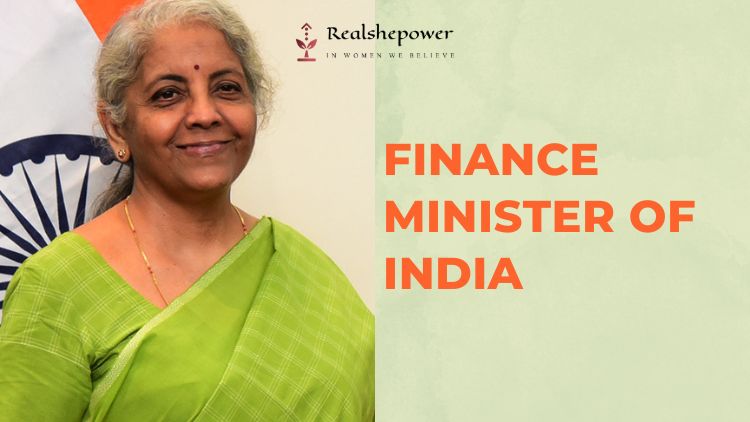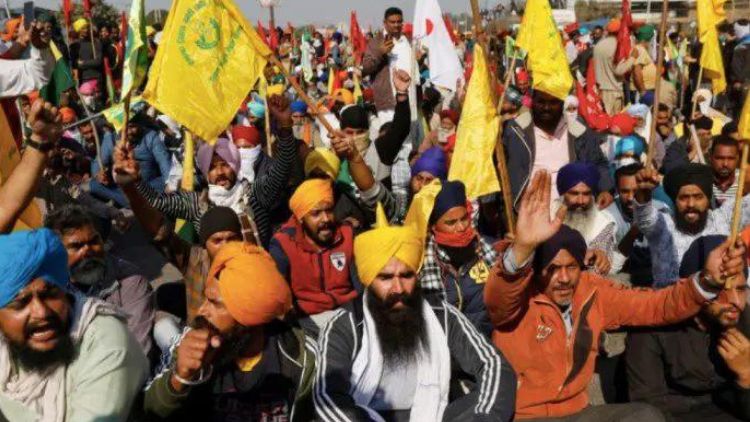Nirmala Sitharaman: The First Full-Time Woman Finance Minister of India


India has a rich and diverse political history with several leaders and personalities leaving their mark on the country. One such personality that has gained prominence in recent years is Nirmala Sitharaman, the first full-time woman finance minister of India. Sitharaman, who hails from Tamil Nadu, has had an interesting and eventful journey in politics.
Early Life and Education
Nirmala Sitharaman was born on August 18, 1959, in Madurai, Tamil Nadu. She was the daughter of a railway employee, and her family had modest means. Despite the financial constraints, her parents ensured that she received a good education. Sitharaman did her schooling in Madurai and later moved to Tiruchirappalli to pursue a Bachelor’s degree in Economics. She also holds a Master’s degree in Economics from Jawaharlal Nehru University, Delhi.
Entry into Politics
Sitharaman’s entry into politics was accidental. She moved to London in the 1980s to work as a senior manager at Price Waterhouse. During her stay in London, she became an active member of the Overseas Friends of the Bharatiya Janata Party (BJP). In 2003, she returned to India and became a full-time member of the BJP.
Sitharaman’s rise in the BJP was meteoric. She served as a spokesperson for the party and was later appointed as the national secretary. In 2014, when the BJP formed the government at the Centre, she was made the Minister of State for Finance and Corporate Affairs.
Role as the Minister of Commerce and Industry
In 2017, Sitharaman was given the responsibility of the Ministry of Commerce and Industry. As the minister, she initiated several measures to boost the country’s export and manufacturing sectors. She worked towards simplifying the process of doing business in India and implemented several policy reforms. One of the most significant initiatives she undertook was the launch of the Goods and Services Tax (GST), which aimed to unify the country’s tax system.
Sitharaman’s tenure as the Minister of Commerce and Industry was marked by her proactive approach towards the country’s trade relations. She played a crucial role in India’s negotiations with the United States on the Generalized System of Preferences (GSP) scheme. Her efforts ensured that India retained the benefits under the scheme, which had come under threat from the Trump administration.
First Full-Time Woman Finance Minister
In 2019, Sitharaman was appointed as the first full-time woman Finance Minister of India. She took charge of the ministry at a time when the country’s economy was going through a rough patch. The GDP growth rate had slowed down, and there was a slowdown in consumption and investment.
Sitharaman’s first budget, which was presented in July 2019, aimed to address the challenges faced by the economy. The budget focused on several key areas, including the rural sector, infrastructure, and startups. One of the most significant measures announced in the budget was the reduction of the corporate tax rate from 30% to 22%.
Sitharaman also launched several initiatives to boost the country’s financial sector. She announced the merger of several public sector banks, which aimed to create stronger and more robust banks. She also initiated several measures to address the problems faced by the Non-Banking Financial Companies (NBFCs) and the housing sector.
Criticism and Controversies
Sitharaman’s tenure as the Finance Minister has not been without its share of controversies. Her decision to merge several public sector banks was criticised by several experts who felt that the move would lead to the closure of several branches and job losses. The economic slowdown, which was exacerbated by the COVID-19 pandemic, also led to criticism of Sitharaman’s handling of the economy. Some experts felt that the government’s stimulus package was not adequate to address the challenges faced by the economy.
Sitharaman’s handling of the agrarian crisis has also come under scrutiny. The government’s decision to pass three farm bills led to protests by farmers across the country. Critics felt that the bills would lead to the dismantling of the Minimum Support Price (MSP) system and make farmers vulnerable to exploitation by big corporations.
Final Observation
Nirmala Sitharaman’s journey in politics has been eventful and inspiring. As the first full-time woman Finance Minister of India, she has undertaken several initiatives to boost the country’s economy and financial sector. While her tenure has been marked by controversies, there is no denying that she has made a significant contribution to the country’s political landscape. Her story is a testament to the fact that with hard work and determination, one can achieve great heights in life.
Read: The New Farm laws Are Progressive

You can now write for RSP Magazine and be a part of the community. Share your stories and opinions with us here.
